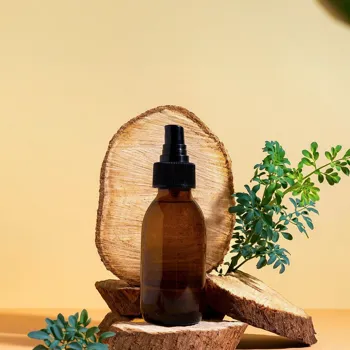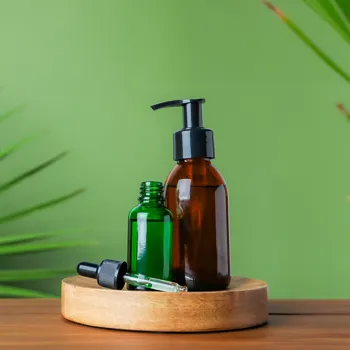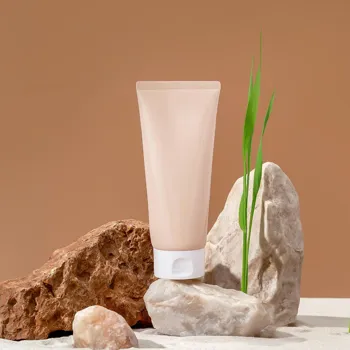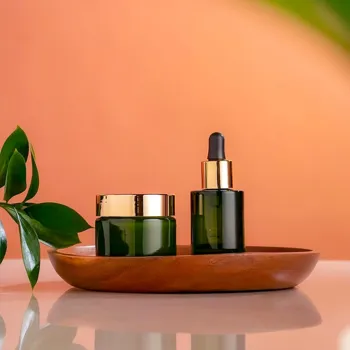Dive into the World of Organic Beauty: Are They Worth the Hype? Unravel the truth behind organic beauty products
In a world increasingly conscious about what we put on our skin, organic beauty products
are enjoying a massive surge in popularity in India. From small-scale artisanal brands to established cosmetic giants, everyone seems to be jumping on the "organic" bandwagon.

But what exactly does "organic" mean in the context of beauty, and more importantly, are these products really worth the extra rupees? Let's delve into the blooming world of organic beauty in India and find out if it lives up to the hype.
Organic beauty products use plant-derived ingredients for skin health
The term "organic" in the beauty industry, just like in the food industry, refers to products formulated with ingredients grown without synthetic pesticides, herbicides, GMOs (genetically modified organisms), and artificial fertilizers.
Instead, organic farming practices prioritize soil health, biodiversity, and natural pest control methods. In beauty products, this translates to using plant-derived ingredients like aloe vera, coconut oil, shea butter, essential oils, and herbal extracts sourced from organic farms.
The appeal is pretty straightforward: many believe that avoiding synthetic chemicals reduces the risk of skin irritation, allergic reactions, and potential long-term health concerns.
Navigating the organic beauty industry without universal standards
However, navigating the organic beauty landscape can be tricky. Unlike the food industry, where organic certification standards are relatively well-defined (though still vary across countries), the beauty industry lacks a universal, legally binding definition of "organic.
" This means a product labeled "organic" might contain only a small percentage of organic ingredients, while the rest could be synthetic.
The market is flooded with products boasting "natural," "eco-friendly," or "plant-based" labels, which, while appealing, don't necessarily guarantee the absence of synthetic chemicals. It's important to be a savvy consumer and learn to decipher the labels and certifications.
Look for certifications from reputable organizations like ECOCERT, COSMOS, USDA Organic, or BDIH. These certifications ensure that the product meets certain criteria regarding organic ingredient content, sustainable sourcing, and environmentally friendly production processes.
Organic beauty offers gentler skin care with natural ingredients
One of the main attractions of organic beauty is its potentially gentler impact on the skin. Many people, especially those with sensitive skin, eczema, or allergies, find that organic products are less likely to cause irritation or breakouts.

Synthetic fragrances, preservatives, and dyes, commonly found in conventional cosmetics, can often trigger adverse reactions. Organic products tend to rely on natural alternatives like essential oils for fragrance and plant-derived preservatives.
For example, instead of parabens, a common preservative, organic formulations might use rosemary extract or vitamin E. This shift towards natural ingredients can be a boon for those seeking to minimize their exposure to potentially harsh chemicals and artificial additives.
Remember that even natural ingredients can cause allergies in some people, so it's always wise to do a patch test before applying a new product to your entire face or body.
Choosing organic beauty promotes sustainability and environmental responsibility
Another compelling reason to choose organic beauty is its positive impact on the environment. Organic farming practices promote soil health, reduce water pollution, and support biodiversity.
By choosing organic products, you're essentially supporting businesses that prioritize sustainable farming methods and environmentally responsible practices.
Many organic beauty brands also focus on eco-friendly packaging, using recycled materials or biodegradable alternatives to reduce their environmental footprint.
In a world grappling with climate change and environmental degradation, choosing organic beauty can be a small but meaningful step towards a more sustainable lifestyle.
From supporting the community that ethically derive ingredients, to the reduction of pollutants to the earth, organic beauty has a large impact.
Organic beauty products cost more but offer ethical sourcing and sustainable practices
Now, let's address the elephant in the room: the price. Organic beauty products are often more expensive than their conventional counterparts.

This is primarily due to the higher cost of sourcing organic ingredients, the smaller scale of production, and the expenses associated with organic certification. Organic farming requires more labor-intensive practices, and the yield may be lower compared to conventional farming.
However, it's important to remember that you're not just paying for the ingredients; you're also paying for the ethical sourcing, sustainable practices, and reduced environmental impact.
There are increasingly more affordable organic options entering the market, so doing your research and comparing prices is key. Some brands offer smaller sizes or sample sets, which can be a great way to try out products before committing to a full-sized purchase.
Benefits of organic beauty in Indian context: holistic skincare with Ayurveda
Organic beauty comes with advantages such as potentially reduced skin irritation, environmental consciousness, and support for sustainable practices.

In the Indian context, with our rich tradition of Ayurveda and herbal remedies, organic beauty resonates deeply with many consumers who seek natural and holistic approaches to skincare.
While navigating the "organic" label requires some diligence and research, the potential benefits for your skin and the planet make it a worthwhile exploration.
AI Generated Content. Glance/InMobi shall have no liability for the content











